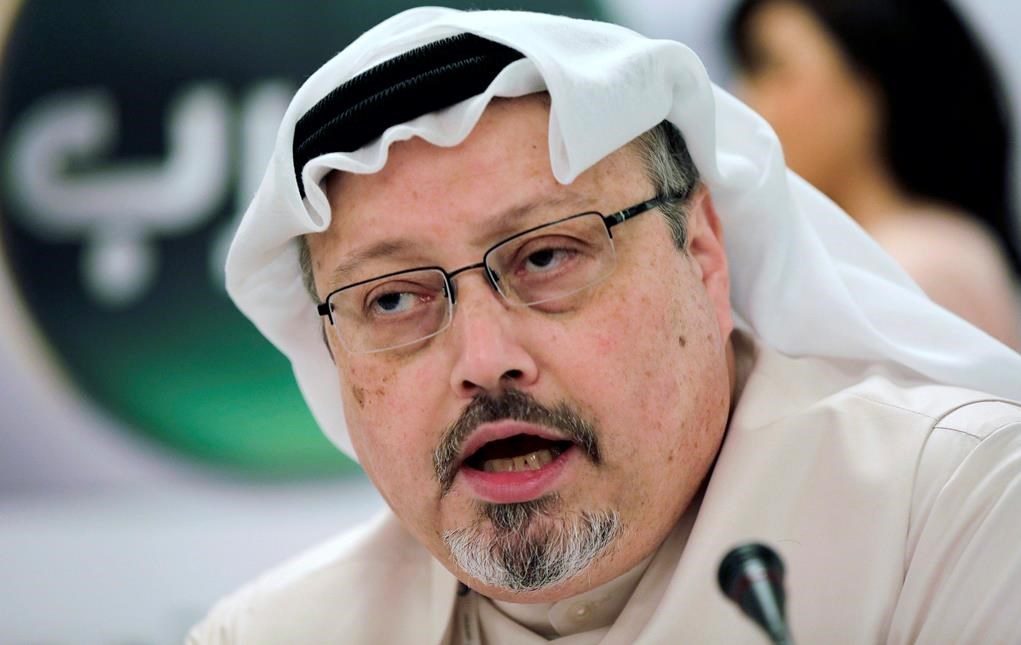
Saudi Arabia’s crown prince likely approved the killing of U.S.-based journalist Jamal Khashoggi inside the Saudi consulate in Istanbul, according to a newly declassified U.S. intelligence report released Friday. The finding could escalate pressure on the Biden administration to hold the kingdom accountable for a murder that drew widespread outrage in the U.S. and abroad.
The public blaming of Crown Prince Mohammed bin Salman amounted to an extraordinary rebuke and was likely to set the tone for the new administration’s relationship with a country President Joe Biden has criticized but which the White House also regards in some contexts as a strategic partner.
The conclusion that the prince approved an operation to kill or capture Khashoggi, a critic of his authoritarian consolidation of power, was based on what intelligence officials know about his role in decision-making inside the kingdom as well as the involvement of one of his key advisers, Saud al-Qahtani, and members of his protective detail, according to the report from the Office of the Director of National Intelligence. Officials also factored in the prince’s past support for using violent measures to silence dissidents abroad, the report said.
As Democrats in Congress clamoured for aggressive action, the State Department responded by announcing visa restrictions on 76 Saudi individuals involved in threatening dissidents abroad.
“As a matter of safety for all within our borders, perpetrators targeting perceived dissidents on behalf of any foreign government should not be permitted to reach American soil,” said Secretary of State Antony Blinken.
The declassified document was released one day after a later-than-usual courtesy call from Biden to Saudi King Salman, though a White House summary of the conversation made no mention of the killing and said instead that the men had discussed the countries’ longstanding partnership. The kingdom’s state-run Saudi Press Agency similarly did not mention Khashoggi’s killing in its report about the call, rather focusing on regional issues such as Iran and the ongoing war in Yemen.
The milder tone on the call was in contrast to Biden’s pledge as a candidate to make Saudi Arabia “a pariah” over the killing.
Once in office, Biden has said he would maintain whatever scale of relations with Saudi Arabia that U.S. interests required. He also ordered an end to U.S. support for the Saudi-led bombing campaign in Yemen and said he would stop the sale of offensive weapons to Saudi Arabia. He’s given few details of what weapons and support he meant.
White House press secretary Jen Psaki told reporters Friday that the administration has been clear that it will “recalibrate our relationship” with Saudi Arabia.
Democrats, meanwhile, pressed for strong action.
Rep. Adam Schiff, chairman of the House Intelligence Committee, urged the Biden administration to make sure the report leads to “serious repercussions against all of the responsible parties it has identified, and also reassess our relationship with Saudi Arabia.” And Sen. Ron Wyden, an Oregon Democrat and Intelligence Committee member, called for consequences for the prince – such as sanctions – as well as for the Saudi kingdom as a whole.
Khashoggi had gone to the Saudi consulate to pick up documents needed for his wedding. Once inside, he died at the hands of more than a dozen Saudi security and intelligence officials and others who had assembled ahead of his arrival. Surveillance cameras had tracked his route and those of his alleged killers in Istanbul in the hours leading up to his killing.
A Turkish bug planted at the consulate reportedly captured the sound of a forensic saw, operated by a Saudi colonel who was also a forensics expert, dismembering Khashoggi’s body within an hour of his entering the building. The whereabouts of his remains remain unknown.
The prince said in 2019 he took “full responsibility” for the killing since it happened on his watch, but denied ordering it. Saudi officials have said Khashoggi’s killing was the work of rogue Saudi security and intelligence officials. Saudi Arabian courts last year announced they had sentenced eight Saudi nationals to prison in Khashoggi’s killing. They were not identified.





